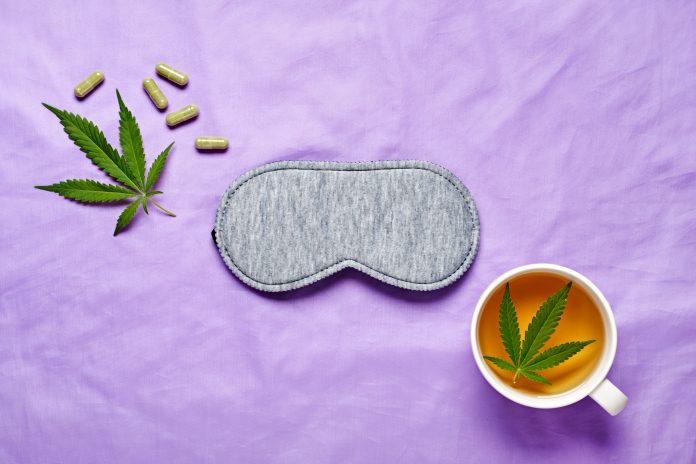Recent cannabis use has been shown to affect extremes of nightly sleep duration, being either less than six hours or more than nine hours, with more intense patterns among heavier users
Published online in the journal Regional Anesthesia & Pain Medicine, a study of a large representative sample of US adults revealed a pattern of sleep duration when using cannabis.
Showing more sleep duration extremes among heavier users – those using on 20 out of preceding 30 days – the study suggests that cannabinoids may have therapeutic value for pain relief, and possibly anxiety and sleep disorders as well.
Cannabis use in North America is increasing, with around 45 million adults in the U.S using it in 2019, which is double the figure reported in the early 2000s. This increase is partially due to the widespread decriminalisation of cannabis in many states over the past decade.
Only two thirds of Americans get the recommended 7-9 hours of sleep every night, and almost half report daytime sleepiness every day. Cannabis has therefore also become a popular sleeping aid, especially since sleep deprivation and insomnia continues to increase.
85% of medical cannabis users say the drug helps sleep
Current evidence on the impact of cannabis on the sleep-wake cycle has been unclear, so researchers wanted to see if cannabis use might be linked to nightly sleep duration in a nationally representative sample of US adults, aged 20-59, who had taken part in the biennial National Health and Nutrition Examination Survey (NHANES) from 2005 to 2018.
Researchers asked if respondents reported difficulty falling asleep, staying asleep, or slept too much in the preceding 2 weeks, as well as whether they had ever consulted a doctor about a sleep problem, and whether they regularly experienced daytime sleepiness on at least 5 of the preceding 30 days.
Survey respondents were characterised as recent or non-users depending on whether they had or hadn’t used cannabis in the past 30 days.
Sleep duration was defined as:
- short – less than 6 hours
- optimal – around 6 to 9 hours
- long – more than 9 hours
Data was collected on potential influential factors such as age, race, educational attainment, weekly working hours, a history of high blood pressure, diabetes, and coronary artery disease, weight in BMI, smoking, heavy alcohol use – 4 or more drinks daily – and prescriptions for insomnia-aiding opioids, and stimulants.
25,348 people responded to the surveys between 2005 and 2018, but the final evaluation is based on only 21,729 respondents who answered all the questions, representing an estimated 146.5 million US adults.
The average nightly sleep duration was discovered to be slightly less than 7 hours across the sample. Around 12% reported less than 6 hours sleep, while 4% reported more than 9 hours nightly.
A total of 3132, or 14.5% of the respondents said they had used cannabis in the preceding 30 days. They were 34% more likely to report short sleep and 56% more likely to report long sleep than those who hadn’t used cannabis in the preceding 30 days.
And they were also 31% more likely to report difficulty falling asleep, staying asleep, or sleeping too much in the preceding 2 weeks, and 29% more likely to have discussed a sleeping problem with a doctor. But recent cannabis use wasn’t associated with frequent daytime sleepiness.
Recent users were more likely to report extremes in sleep duration
The analysis looking at the frequency of cannabis use revealed that moderate users – defined as using on fewer than 20 out of the past 30 days – were 47% more likely to sleep 9 or more hours a night compared with non-users.
Heavy users – using cannabis on 20 or more out of the preceding 30 days – were 64% more likely to experience short sleep, and 76% more likely to experience long sleep compared with non-users.
The responses to the study varied across the survey years, and the study’s limitations included the reliance on self-reported data and the lack of information on cannabis dose. This study may have also been affected by the stigma associated with cannabis use, which may prompt respondents to lie on the study questions.
Researchers said: “Increasing prevalence of both cannabis use and sleep deprivation in the population is a potential cause for concern. Despite the current literature demonstrating mixed effects of cannabis and various cannabinoid formulations on sleep architecture and quality, these agents are being increasingly used as both prescribed and unprescribed experimental therapies for sleep disturbances.
“Our findings highlight the need to further characterize the sleep health of regular cannabis users in the population…Sleep-wake physiology and regulation is complex and research about related endocannabinoid pathways is in its early stages.”











